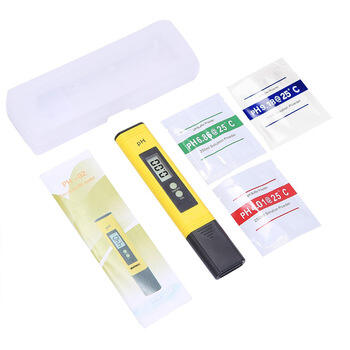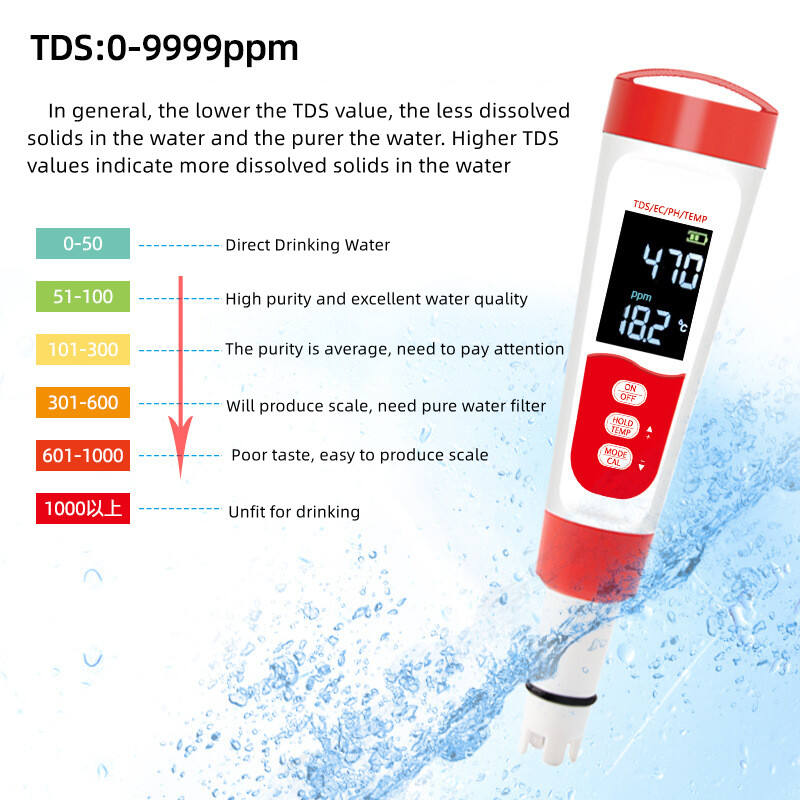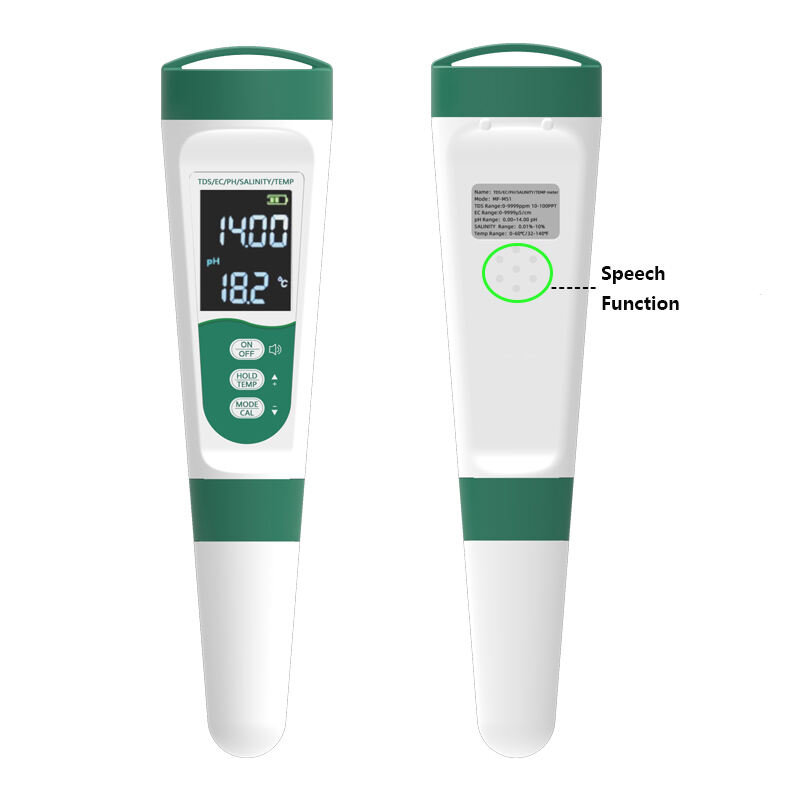ph মিটার পরিমাপ
একটি pH মিটার হলো একটি জটিল ইলেকট্রনিক যন্ত্র যা কোনো দ্রবণের অম্লতা বা ক্ষারতা নির্ধারণের জন্য ডিজাইন করা হয়েছে। এই গুরুত্বপূর্ণ পরীক্ষাগার ও ক্ষেত্র যন্ত্রটি সঠিক সেন্সর এবং উন্নত ডিজিটাল প্রযুক্তি একত্রিত করে বিভিন্ন অ্যাপ্লিকেশনে নির্ভরযোগ্য pH পরিমাপ প্রদান করে। যন্ত্রটির একটি সংবেদনশীল ইলেকট্রোড সিস্টেম রয়েছে যা দ্রবণের হাইড্রোজেন আয়ন গতিবিদ্যা প্রতিক্রিয়া দেখায়, এবং উন্নত সटিকতা জন্য তাপমাত্রা সহযোগিতা ফিচারও রয়েছে। আধুনিক pH মিটারগুলি সাধারণত 0 থেকে 14 পর্যন্ত pH মান দেখানোর জন্য একটি ডিজিটাল ডিসপ্লে সহ রয়েছে, এবং অনেক মডেলে 0.01 pH একক পর্যন্ত রিজোলিউশন প্রদান করে। যন্ত্রটি একটি কম্বাইনড ইলেকট্রোড ব্যবহার করে যা পরিমাপ এবং রেফারেন্স উপাদান দুটি একত্রিত করে, যা স্থিতিশীল এবং পুনরাবৃত্তি যোগ্য ফলাফল নিশ্চিত করে। উন্নত মডেলগুলিতে স্বয়ংক্রিয় ক্যালিব্রেশন ফাংশন, ডেটা লগিং ক্ষমতা এবং ডেটা ট্রান্সফারের জন্য কানেক্টিভিটি অপশন অন্তর্ভুক্ত রয়েছে। এই যন্ত্রগুলি জল গুণগত নিরীক্ষণ, খাদ্য উৎপাদন, ঔষধ নির্মাণ এবং শিক্ষাগত গবেষণা সহ বিভিন্ন ক্ষেত্রে অপরিসীম মূল্যবান। pH মিটারের পেছনের প্রযুক্তি এখন স্বয়ংক্রিয় তাপমাত্রা সহযোগিতা, ইলেকট্রোড স্ট্যাটাস ইন্ডিকেটর এবং ক্যালিব্রেশন মেমোরি সহ ফিচার অন্তর্ভুক্ত করেছে, যা তাদের আগে থেকেই বেশি স্থিতিশীল এবং ব্যবহারকারী বান্ধব করেছে।


